Editor’s Key Takeaways: Under the Lens: School of Photography Review

The School of Photography (TSOP) is an online platform designed to advance photography skills through various courses. The blog discusses the platform, its course offerings, pricing options, and competitors, to help potential learners decide if TSOP is the best fit for them.
- The School of Photography (TSOP) is run by Marc Newton, a certified photography instructor & a professional photographer. It currently features seven comprehensive photography courses, each with video tutorials, assignments, and occasionally quizzes.
- TSOP covers topics skewed towards portrait and landscape photography, and their courses range from “Photography for Beginners” to the advanced “Portrait Retouching Course”.
- Users can purchase each course individually or purchase a TSOP membership, which allows access to all existing and future offerings.
- The platform is user-friendly, enabling users to easily browse course options, access sample content through TSOP’s Free Tutorials page and Marc’s YouTube channel.
The blog concludes with an intention to review TSOP’s pricing and compare it with its alternatives in an upcoming section.
When you buy through links on our site, we may earn a commission at no cost to you. We evaluate products independently. Commissions do not affect our evaluations.
Introduction
The School of Photography stands as a noteworthy resource for photography education, and this hands-on review aims to share our experiences with the platform.
It covers the quality of courses offered, evaluates its value for money, compares it to alternative photography resources, and much more. This review is designed to help you decide if The School of Photography is the ideal learning resource for their needs.
The School of Photography Review:

The School of Photography: Overview
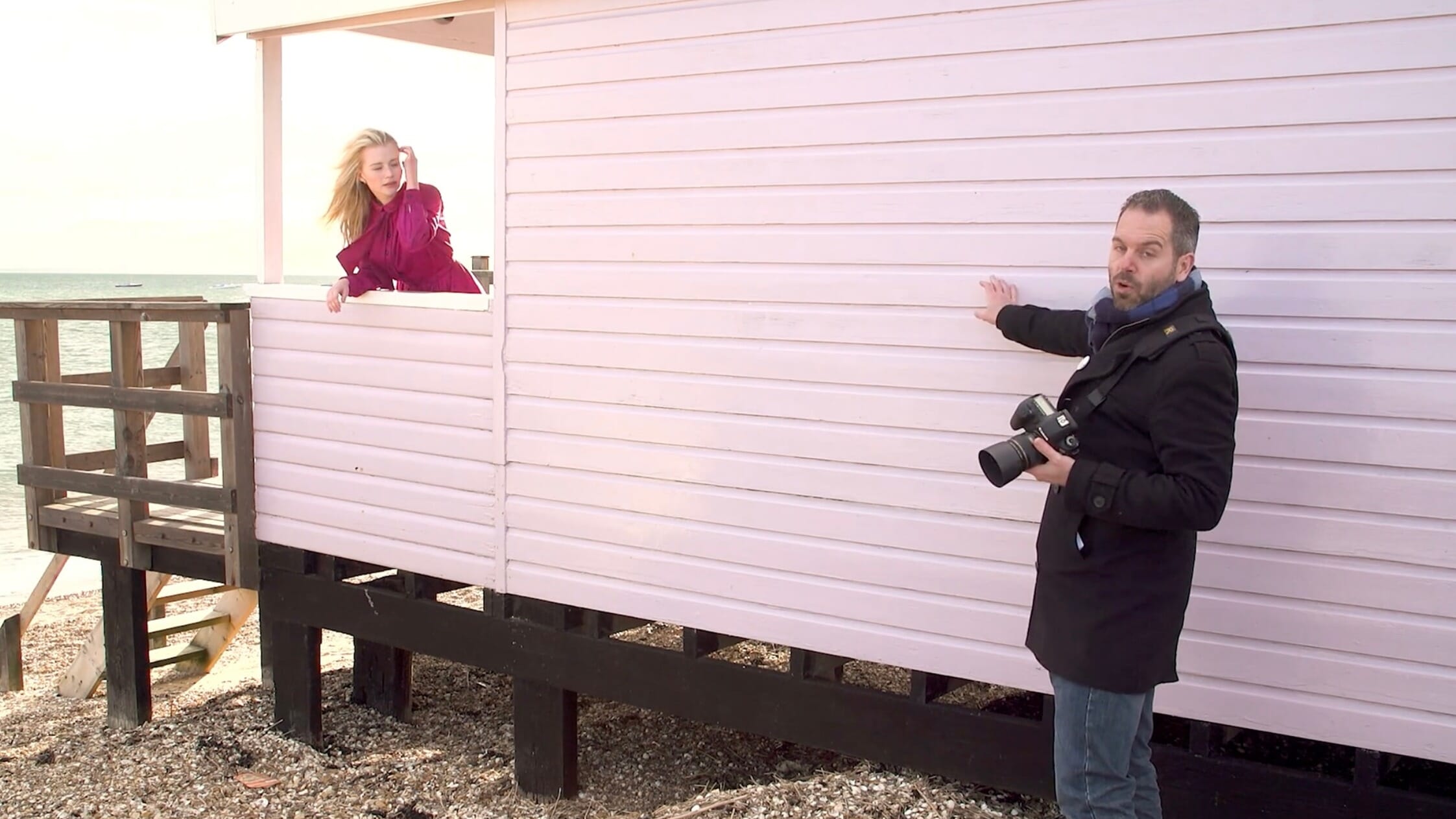
At PhotoWorkout, we highly recommend The School of Photography (TSOP) for beginners. Marc Newton’s clear and engaging instruction simplifies photography fundamentals, and the flexible, self-paced course structure allows for personalized learning. We’ve seen significant improvements in our skills and understanding. TSOP is the ideal introduction to photography.
Recommended course: Start with the Beginners Photography Course by joining as a member (which includes an active learning group).
Course Duration: 1-2 months (Beginners Course)
- Excellent teaching
- Great beginner course
- Well-structured content
- Reasonable price
- Limited in-the-field instruction
The School of Photography (TSOP) is an online learning platform run by Marc Newton, a professional photographer and certified photography instructor.
Currently, TSOP offers seven photography courses; each consists of video tutorials, assignments, and (occasionally) quizzes, all designed to make you a better photographer, fast. Courses range from the beginner-friendly Photography for Beginners to the more advanced Portrait Retouching Course, and while TSOP is designed to appeal to photographers of all stripes, topics and examples are heavily skewed toward portrait and landscape photography.
Later on in this review, we’ll discuss the different pricing options in greater detail, but note that each TSOP course comes with two routes of access:
You can either purchase the course individually, or you can purchase a TSOP membership (which provides access to all existing and future TSOP offerings).
Layout and Ease of Use
The School of Photography is simple to use and understand, even for those unfamiliar with online course platforms.
You can browse course options on the Courses page. And you can access high-quality, sample (free!) content on TSOP’s Free Tutorials page, as well as Marc’s YouTube channel. (That way, if you’re on the fence, you can get a sense of Marc’s style of teaching and overall video quality before buying.)
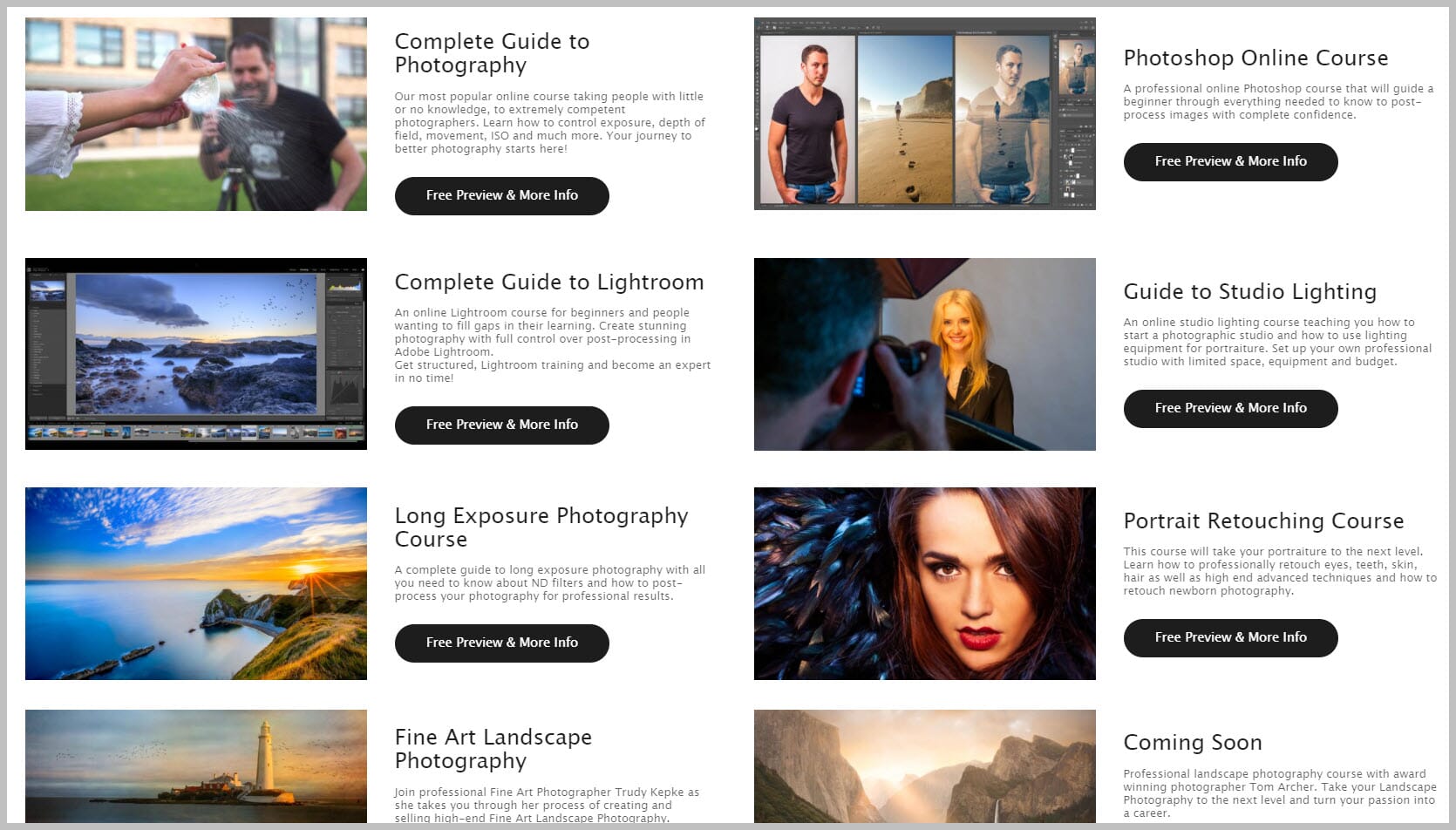
Then, once you’ve paid for your TSOP course or subscription, you’ll gain access to a personal Dashboard, which lists your courses:
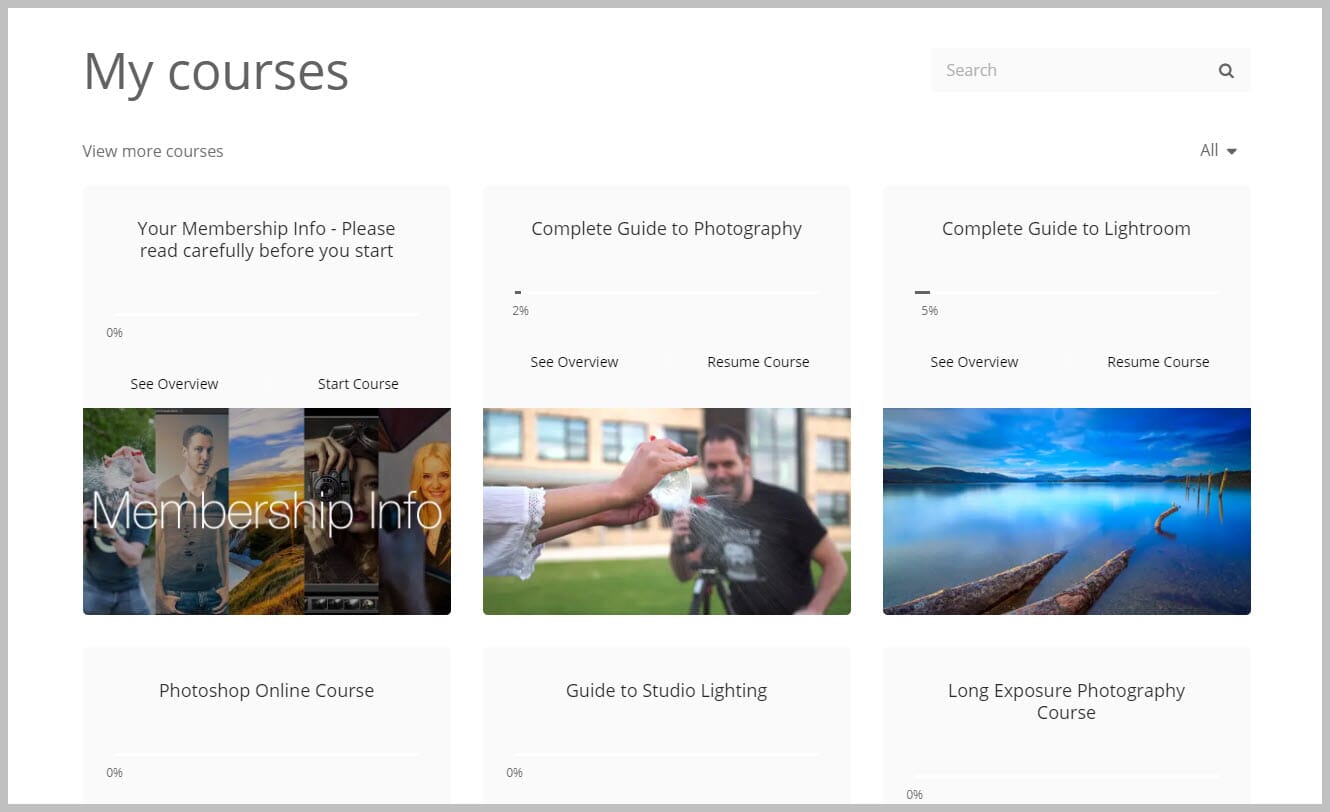
For those with a full membership, all seven TSOP courses will appear.
To complete a course, simply open the course page, then watch all the videos. Along the way, you’ll run into PDF assignments, but these are optional – you’re always free to skip the assignments, or you can complete the entire course, then go back and work on assignments if you prefer.
As you go through the course videos, you can mark topics as “Complete”; that way, even if you come back to the course months later, you can remember your progress and instantly determine the next video to watch.
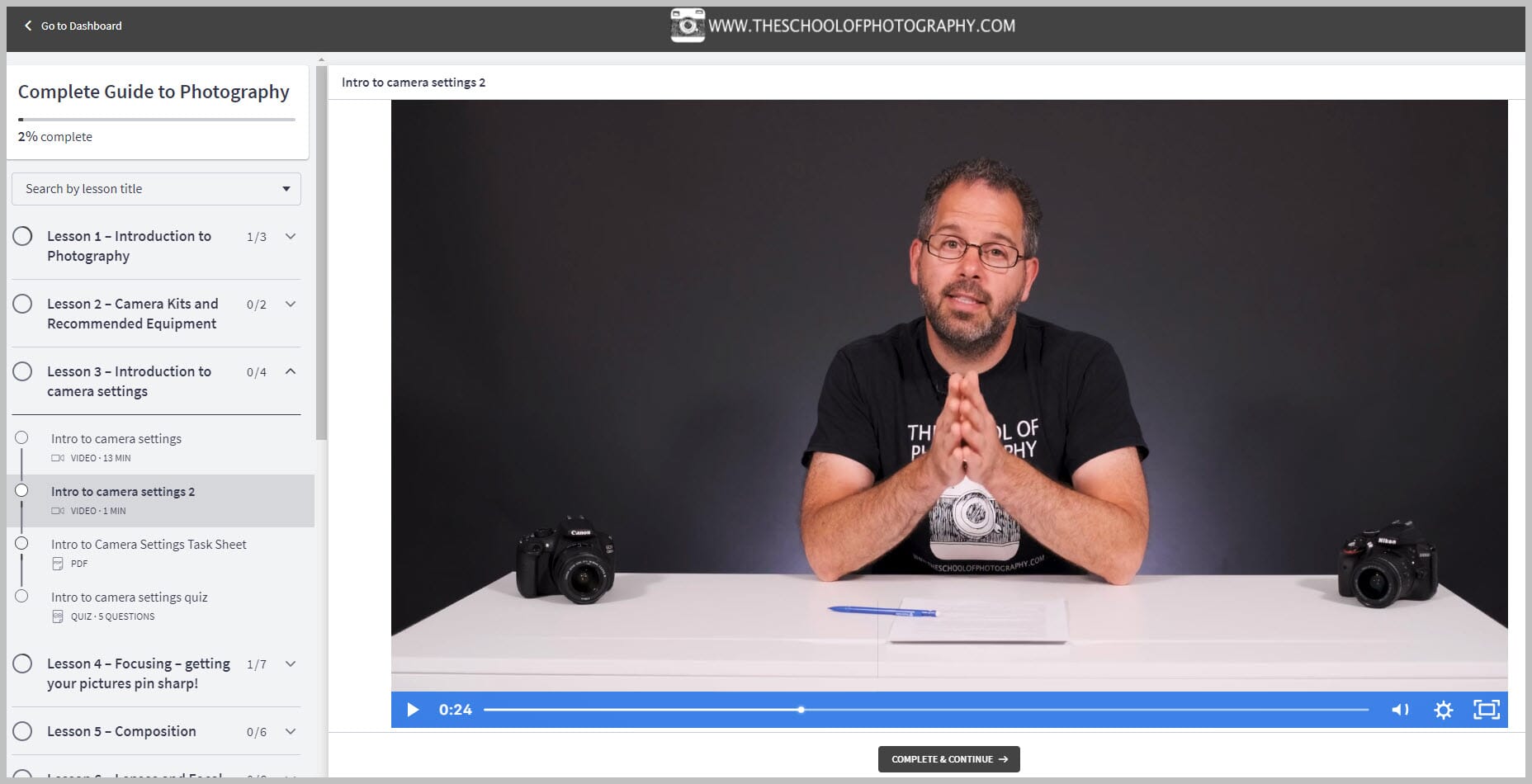
Videos are HD (though not 4K), and you have the option to adjust the quality and speed like you would any YouTube video. If you’re finding course content a bit tricky, you can easily slow Marc down to 0.75x speed, and if you’re just looking for a photography refresher or you’re rewatching a course, 1.5x works great.
Unfortunately, videos don’t include subtitles or transcripts, though the topic PDFs do rehash a lot of the key information for those who like to learn by reading.
Overall, we were pleased with The School of Photography’s simplicity and layout, though the PDFs are a bit clunky and the lack of subtitles is frustrating. Whether you’re a course beginner or experienced online photography student, you’ll find TSOP easy to navigate.
Course Quality
We spent hours watching The School of Photography courses for this review, going through each course – from the basic photography, Lightroom, and Photoshop guides all the way down to the long exposure and fine art landscape courses.
Here’s what we discovered:
Teaching Style
Within a few minutes of hitting the first “Play” button, it was clear that:
- Marc really knows his stuff
- He’s an excellent teacher with a penchant for simple, easy-to-understand explanations
In fact, we were immediately surprised by how polished each course seemed. Marc’s delivery is impeccable, and he takes difficult concepts – such as metering, Photoshop masking, and studio lighting – and turns them into something even a beginner can understand. He also does a great job organizing course videos and topics for easy learning, especially in his introductory photography, Lightroom, and Photoshop courses.
Most of the lessons take place behind the studio desk, though Marc does a good job of keeping things interesting with props, diagrams, and other graphics. And he does venture throughout the studio to demonstrate concepts.
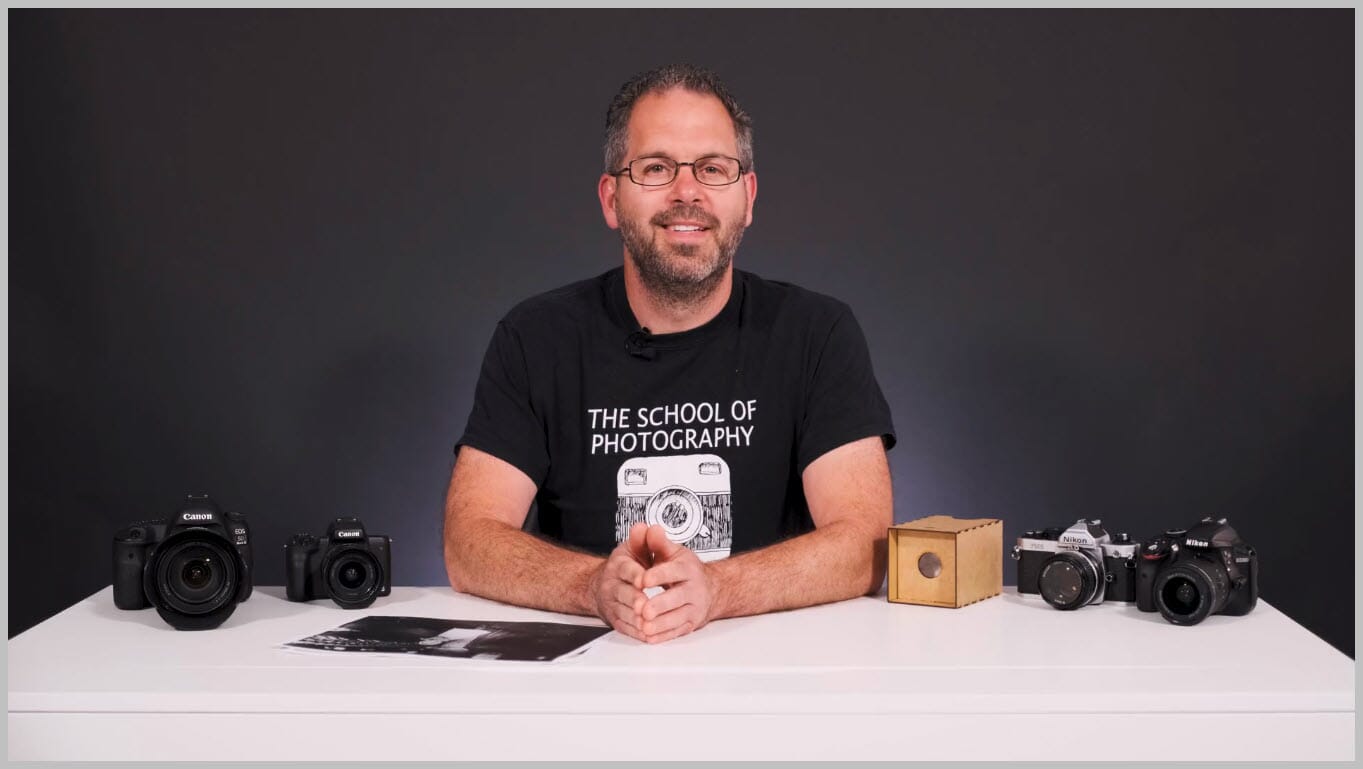
If we have one gripe with Marc’s teaching, it’s the lack of in-the-field demonstrations*. Photography is a hands-on activity, and our favorite courses get you out in the field and experiencing photography in real time, whereas Marc tends to stick to the desk and the studio for its instruction.
Yes, there are some videos that do get you outside or into a real photography studio – and these are much more common in the higher-level courses, such as the Guide to Studio Lighting and the Long Exposure Photography Course – but we would’ve liked at least one video per lesson with a realistic, real-world demonstration.
*2024 Update: The previously mentioned gap in practical, in-the-field demonstrations has been effectively addressed with the introduction of new courses in 2023.
The Astrophotography Course and the Photographing Cities at Night course now offer immersive, on-location sessions where instructors guide students through real-world shooting scenarios.
We would also note that Marc caters more toward beginners than enthusiasts; he assumes little-to-no knowledge in his introductory courses (though higher-level courses do require some know-how). If you’re a beginner, this is fantastic, and even more experienced shooters should be fine, provided that you’re willing to speed up the course or skip through topics you’re already familiar with.
Bottom line, though: Marc is an excellent teacher, and beginners will undoubtedly find his tutorials engaging.
Course Depth
The School of Photography’s introductory trio of courses – on photography, Lightroom, and Photoshop – are amazingly comprehensive.
In fact, they’re quite possibly the best set of courses for beginners we have ever encountered, carefully building up your knowledge of key concepts. By the time you’re done with these three core courses, you’ll be a genuinely capable camera, Lightroom, and Photoshop user (though you’ll still have plenty to learn, some of which is addressed by TSOP’s other, more advanced courses).
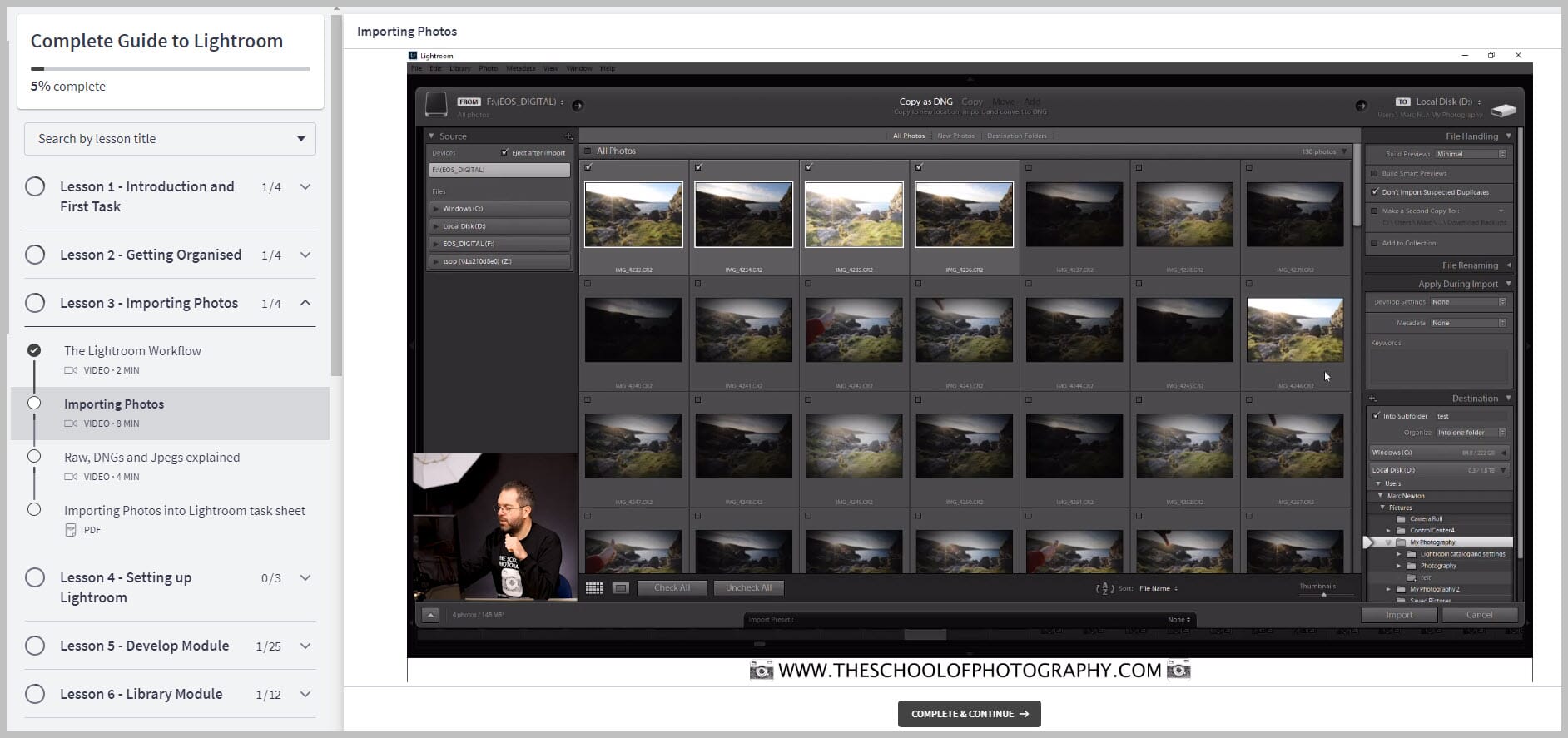
For instance, take a look at the Lightroom course, which is broken down into 20 lessons (or 70 bite-sized videos in total). The first few lessons are tailored to absolute beginners, and explain how to create a useful folder structure, how to import photos, and how to set up Lightroom for the best results.
Once you’re familiar with these basic Lightroom concepts, Marc moves on to an in-depth discussion of Lightroom editing, where he discusses all the editing tools and adjustments.
Then he goes even further, explaining advanced concepts such as HDR merging and panorama stitching, and he even ends with a quick series of lessons on Lightroom’s other modules.
Course Catalog
| Course | Price | Duration |
|---|---|---|
| TSOP Membership | $159/year $19/month Gift it | Min. 1 month |
| Beginners Photography Course | $99 | 58 videos, 12 quizzes, 16 worksheets; |
| Photoshop Online Course | $99 | 16 hours, 113 videos; |
| Complete Guide to Lightroom | $99 | 14 hours, 82 videos; |
| Guide to Studio Lighting | $99 | 31 videos, 17 worksheets; |
| Headshot Photography Course with Mark McGee | $99 Free Sample | 50 videos, 12 worksheets; |
| Astrophotography Course | $99 Free Sample | 49 videos, 16 worksheets; |
| Portrait Retouching Course | $99 | 57 videos, 10 worksheets; |
| Photographing Cities at Night | $99 Free Sample | 49 videos, 9 worksheets; |
| Long Exposure Photography Course | $99 | 35 videos, 13 worksheets; |
| Fine Art Landscape Photography Course with Trudy Kepke | $99 | 34 videos, 7 worksheets; |
| Fine Art Family Portraiture with Sujata Setia | Releasing soon | – |
| Pro Landscape Photography Course with Tom Archer | $99 Free Sample | 28 videos, 15 worksheets; |
| Macro Photography Course | $99 Free Sample | 28 videos, 15 worksheets; |
| Wildlife Photography Course | $99 Free sample | 34 videos, 7 worksheets; |
After watching hundreds of TSOP videos, we are big fans of Marc and what he’s trying to do with The School of Photography: create a comprehensive set of courses that can address the needs of beginners all the way up through more experienced shooters.
Ideally, you’d be able to start out as a novice, then work your way up to higher-level courses that address all key photography topics and genres, from advanced Photoshop tricks to HDR landscape photography to product photography, street photography, portrait photography and more.
Price
As we mentioned above, there are two ways you can purchase courses from The School of Photography:
- You can buy them individually for $99 USD each (lifetime access)
- You can purchase a TSOP membership, which costs $19 USD per month or (if you choose to pay for the annual subscription) $159 per year.

We think $99 USD for the individual courses seems reasonable. A much better deal, however, is the $19 monthly membership fee, which is on par with other online photography courses.
You do get fewer courses compared to KelbyOne and Karl Taylor Education, which is why I don’t recommend the annual membership; instead, get a TSOP month-to-month subscription, watch the courses you’re interested in, and once you’ve finished, cancel your membership. If and when Marc puts up more tutorials, you can always resubscribe.
The School of Photography Alternatives
Throughout this review, I’ve mentioned a few competitors, including PHLEARN, Karl Taylor Education (now called visual education), and KelbyOne. There are also a few other prominent online broad-spectrum educators to consider, such as Joel Grimes and Trey Ratcliff, plus you can check out specialist courses (e.g., Albert Dros’s excellent course on landscape photography post-processing).
So how does The School of Photography compare?
If you’re looking to get started with photography, TSOP’s courses are some of the best out there. They’re certainly more comprehensive and better structured than anything offered by KelbyOne and Karl Taylor Education, and Marc does a great job breaking down concepts in ways that beginners can understand.

If you’re more experienced, however, you might want to think about other options. KelbyOne offers approachable instruction of high-level photography techniques (many of the instructors are world-class shooters and/or retouchers), except for commercial photography, which is where Karl Taylor Education excels. Post-processing is PHLEARN’s strength, so if you’re purely focused on learning pro-level Photoshop skills, it’s probably the way to go.

Fortunately, a subscription to any of these sites is pretty cheap, so you can always start with one, learn all you can, then move on to the next!
Is The School of Photography Right for You?
Now that you’ve finished this The School of Photography review, you should know all about its benefits and drawbacks – and whether it’s the right online photography resource for your needs.
Overall, I’d highly recommend a month-to-month TSOP membership to beginners – Marc’s teaching is excellent, and he provides easy-to-understand, helpful instruction of basic photography and post-processing techniques. The course catalog breadth isn’t great, but that shouldn’t stop you from appreciating the good that currently exists (and maybe we’ll get some additional courses soon!).

 PhotoWorkout’s Rating: 4.5/5
PhotoWorkout’s Rating: 4.5/5